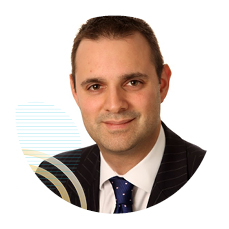FROM FINANCE SYSTEM IT TO HEDGING, A CAREER IN FINANCE KNOWS NO BOUNDARIES 
Onil Banerjee has progressively developed his career in finance over the last twenty or so years.
Currently holding the position of Senior Corporate Hedging Manager, Onil spent a number of years in financial markets IT before deciding he wanted to move to the front office. With that goal firmly in mind he took an MSc in Financial Engineering, and then moved onto an interest rate structuring desk, hedging the risks of renewable energy projects. Next up, time was spent running a team investigating the mis-selling of interest rate hedging products before moving to FX structuring.
With his MSc and a BSc in Computer Science and Psychology already under his belt, Onil took his personal development one step further and and tackled the ACT treasury professional qualifications. Even a change of jobs mid-qualifying didn't slow down his dedication. He studied and revised using only the materials available in the ACT Learning study site, where he found the study guide, sample questions and past papers were invaluable, as was the support offered on the forum.
Having had relatively little previous experience of analysing financial statements, Onil enjoyed learning more about these and says, "It’s very helpful to have this understanding when discussing with my credit team the size of trading lines we are willing to advance to clients." Right now Banerjee is in the banking arm of the money transfer company Western Union. His role is to work closely with clients to structure foreign exchange hedging solutions to protect their businesses. This involves building strong relationships with finance and treasury teams, learning about the challenges they face, and what they need to achieve from their hedging. "Rather than solely reacting to exchange rate movements, I help clients build long-term strategies to manage their risks. I also train our dealers in how to market our product set to our clients. It’s very easy in a role like mine to see every problem in terms of a hedging solution. Studying for the AMCT qualification has helped me appreciate the number of moving parts involved in the treasury function, and how hedging affects all the areas of the business. It is not uncommon to speak to clients who do not fully understand the risks they face, and being able to use the skills acquired to explain how their business is at risk typically leads to a much more comprehensive and fruitful conversation.
Getting treasury qualified helps you talk the language of your clients and really understand their needs.
"The main benefit is credibility. In the space in which I work there is lots of competition, so it’s important to be able to distinguish oneself. Having the letters AMCT after my name demonstrates that I have put in the time and effort to gain the qualification, and the clients I speak to can be safe in the knowledge that I understand them. I realised that many of the treasurers I spoke to held the AMCT qualification, and it would help both my understanding of their businesses, and my career to be able to talk their language. I wanted to understand the specific problems that cause treasurers sleepless nights, so I was better able to design solutions to serve their needs. I may consider a move to a treasury role at some point in the future, so having the qualification for this reason was also a consideration."
Onil's the perfect example of how their are no rules and route to a successful career in finance. You will probably find yourself naturally gravitating towards the areas that interest you and find that where you excel the most!
